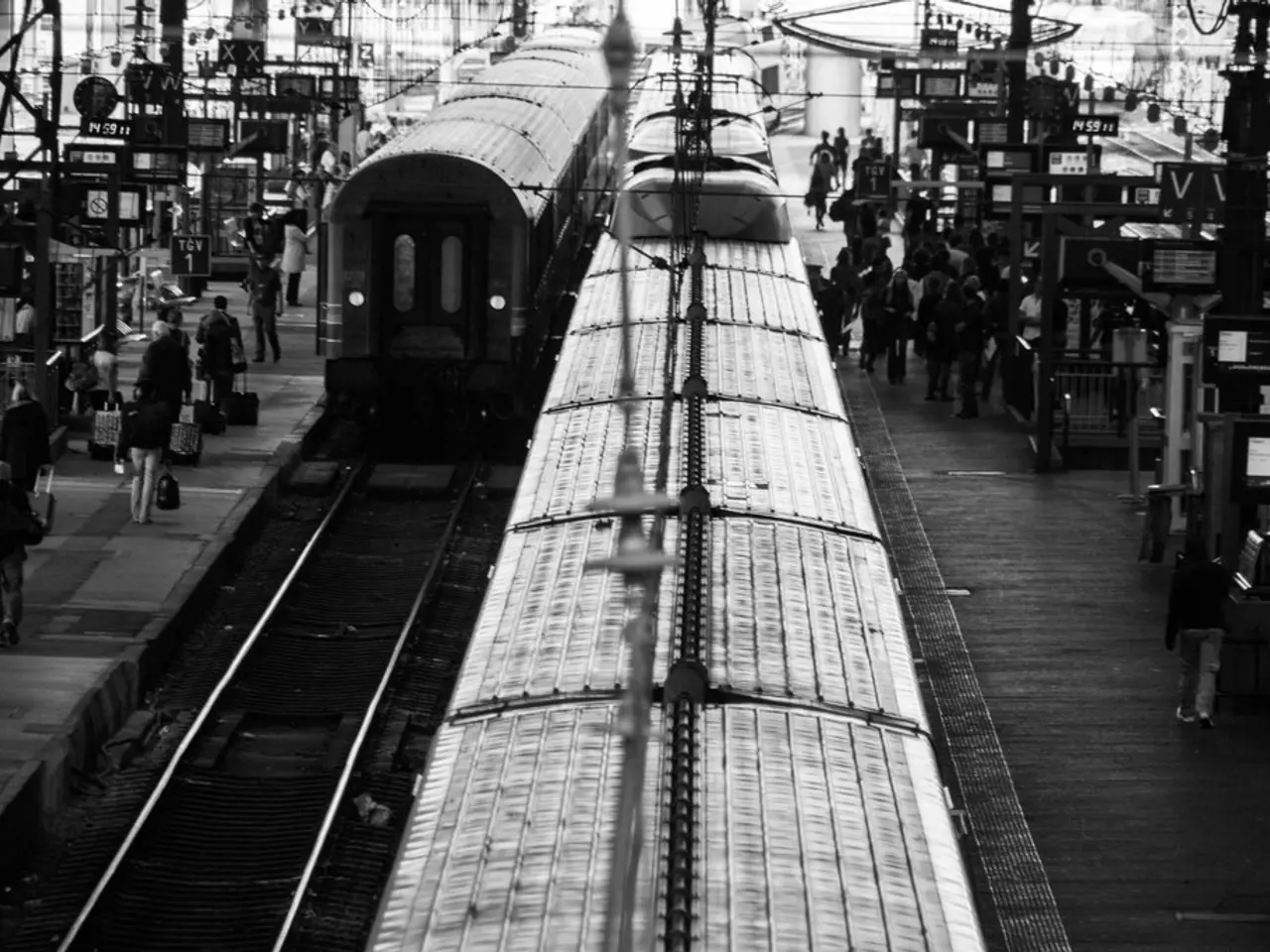German Railways faces competition as Flix introduces new, cheaper train services
In a bold move to shake up the European rail industry, Munich-based company FlixMobility, known for its popular bus services, has announced plans to introduce high-speed trains in the coming years. The company, led by CEO André Schwämmlein, aims to compete with German Railways and bring a fresh approach to long-distance rail travel.
Currently, almost every train ticket in Europe, except for Flix's green trains, is sold on DB Navigator, the most widely used ticket platform in Germany. However, tickets for Flix trains are not available on this platform, a disadvantage that Flix is working to address. The technical feasibility of selling Flix tickets on DB Navigator has been acknowledged, but the issue of access to the sales infrastructure remains a challenge in the current state of competition.
Schwämmlein has emphasised the importance of fair competition in long-distance rail traffic. He believes there is a lack of fair competition on the rails at present. To set themselves apart, Flix trains will offer a straight, barrier-free, and more pleasant entry, with everyone guaranteed a seat. They will also have a simpler layout, eschewing first class and onboard restaurants in favour of snack machines.
To minimise delays, Flix has looked to the S-Bahn as a model, aiming to reduce time lost at stations. This focus on efficiency is reflected in the company's recent order of 65 high-speed trains from Talgo for up to 2.4 billion euros.
The routes to be served and the timeline for the introduction of these trains are still to be determined. However, Schwämmlein has made it clear that the introduction will be gradual. One thing that is certain is that those who want to bring large suitcases or have a better seat will have to pay extra.
Flix's entry into the rail market is not without controversy. The DB Navigator was built with taxpayers' money, raising questions about the fairness of the current system. However, Schwämmlein argues that competition is necessary to drive innovation and keep prices down.
As Flix prepares to take on the established players in the rail industry, it remains to be seen how its approach will be received by passengers and regulators alike. One thing is certain: the rail landscape in Europe is set for a shake-up.








